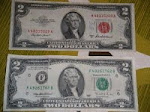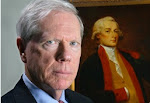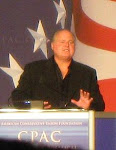BrU wonders:
Are we no more than laboratory rats programmed to behave according to a script written by those who see us as animals, whose only purpose is to be saddled and ridden according to their wishes.
Are we no more than slaves to our own desire for perceived safety , materialism and deceiving comfort?
...here's some musings...
Many are for sure. It may boil down to the simple terrible fact that "propaganda works very very well."
We are immersed in a situation of almost total propaganda - a system so complete that without a keen interest in the specifics, a burning desire to know not only what is going on - but why it is going on. History must be understood. Additionally one must have the means available in terms of time, and resources to perform the work needed to become knowledgeable enough to see through the propaganda. Oh - I forgot that it is important to study propaganda too.
So in terms of citizens and voters - most don't get to a place where they can see the big picture - whether it is their fault due to laziness, lack of resources, or just interested in other things. Regardless - the public remains ignorant as they are unsuspectingly drowned in the total propaganda swamp in which almost everything influencing them keeps them mired. The swamp needs to be drained.
JR
Showing posts with label philosophy. Show all posts
Showing posts with label philosophy. Show all posts
8.20.2010
5.06.2009
A Book Review: The New Epistemology of Morality and Truth by Don Robertson

I don't know where to begin. The very mention of philosophy, let alone Epistemology, almost guarantees audience abandonment - unless the audience consists of philosophers I suppose. But wait - we are all philosophers to some degree - since philosophy springs from our natural sense of wonder (Plato?). So we all practice philosophy to some extent. But as citizens and human beings - does each of us really do as much as we should be doing? Perhaps this review of Don Robertson's book The New Epistemology of Morality and Truth will:
1. Demonstrate the relevance of this seemingly obscure topic to the "real world" of the reader.
2. Provide a fair analysis with a critical eye.
Before I discuss the book I think it is fair to give some background on myself so the reader can decide whether or not to assign value to my observations and opinions regarding this philosophical topic. I admit that I am interested in philosophy - and that my interest led to study focused mainly on Socrates, Plato, and Aristotle. Some of my ramblings can be found on this blog. So let's begin.
My first impressions of the book itself, The New Epistemology of Morality and Truth:
1. Epistemology? I have to look that up. Does this have something to do with religion?
2. Who is the woman depicted in the cover art? The look on her face reminds me of the expression on my own wife's face each time I bring up philosophical topics. Could this cover art portray Don's poor wife as he discusses philosophy for the umpteenth time? I'm joking.
3. Morality and Truth? Good luck! I can't wait to see this! Define morality? Define Truth?
4. Who came up with this title? It can't be someone trying to generate reader interest - can it?
So I began by looking up Epistemology. Yes, I admit it, I didn't know the definition so according to my Apple dictionary:
epistemology |iˌpistəˈmäləjē|
noun Philosophy
the theory of knowledge, esp. with regard to its methods, validity, and scope. Epistemology is the investigation of what distinguishes justified belief from opinion.
In other words - how do we know that which we believe is true - really is? So this is not an obscure or impractical subject - quite the opposite - Epistemology is an uncommon word for what should be a common act. This is what this book is all about. This is a book not just for the philosopher - but for everyone. It is a wake-up call, a challenge for all of us - to think very critically about everything we think we know. Why? Because unless we examine our assumptions we cannot find where we are mistaken - limiting ourselves to a world painted for us by artists with agendas - rather than a world we've done our damnedest to verify. Whether buying a new car, voting, or evaluating the validity of the latest world crisis fed to us via TV - we must individually get to the facts. But how does The New Epistemology of Morality and Truth help us get from where we are now to where we need to be? And why should we bother?
Don Robertson's book begins by blazing a trail right through the heart of academia - mincing no words - sparing no one. He sets an example for iconoclasts and critical thinkers - in a way that is blunt enough to get through the thickest of skulls - even my own. He removes all shame from the act of doubting anyone and everything - he leads by example. Whether you agree with him or not - it is refreshing to me, at least, to read something so free of ulterior motive. But the author must have some motive right? For sure.
I can't speak for the author, only myself, but I detect that the motive of the book is to improve the human condition. Don Robertson has provided his "Moral Imperative of Life" as a guide toward this end. It is:
"The moral imperative of life is to live a life that detracts not at all from the lives available to those who will follow us into this world."
This concise rule is the author's distillation of much thought and study - brief, to the point, and in my opinion a damned good idea. Much elaboration is provided hashing out the details so the reader can understand fully the author's viewpoint. Toward the end of the book we find more valuable contrarian ideas - good ideas that need to be heard. Ideas about the power of the individual and how we can exercise that power.
I found The New Epistemology of Morality and Truth an excellent book and highly recommend it to all readers - especially readers who vote. This book is unique in that the blunt honesty removes all preconceived notions the reader may have right off the bat - worrying not about hurting anybody's feelings. Although at first glance it may seem harsh, the persistent reader will find that the brutal honesty saves much time - since the reader can forget author's motives and focus on the subject matter. I wish more books were so proudly politically incorrect.
Finally - I must offer one critical point regarding the "Moral Imperative of Life." How can anyone know that the consequences of their actions will indeed turn out for the good? Often a person will take action they think will do exactly as stated by the Moral Imperative - but it seems to me there are always unknowns that will limit homo sapiens. For example a friend sent me a parable describing a man watching a moth/butterfly struggling to emerge from its cocoon. He thought that by doing some of the work for the creature, helping get the cocoon out of the way for it, relieving the creature of this struggle, that he was doing good. But what he didn't know was that this struggle was necessary for the creature to inflate it's wings. In the end he harmed the creature. So it goes with the moral imperative - there is no way to be sure that our actions will result in good due to the unknown.
However - despite the above criticism - we must be bold - we must try - we must exercise our personal power without fear. And this is what this book is all about - to think about what we do, why we do it, what knowledge we base our actions on, how any self-proclaimed expert can claim to know the truth more than we can - and how we can leave this world a better place than we found it for those who follow. What could be more important?
Subscribe to:
Posts (Atom)










































































.jpg)












